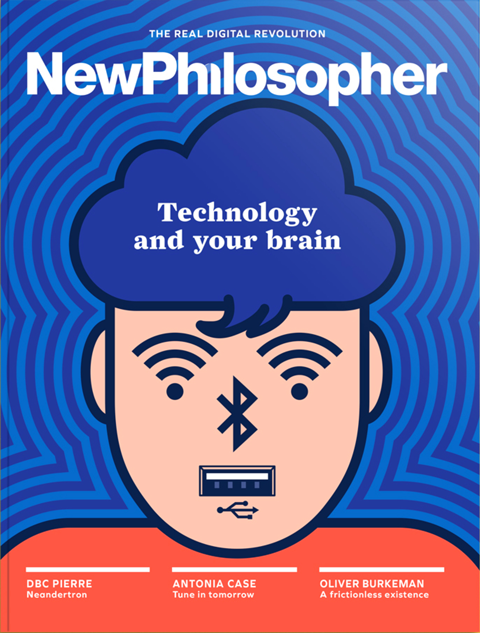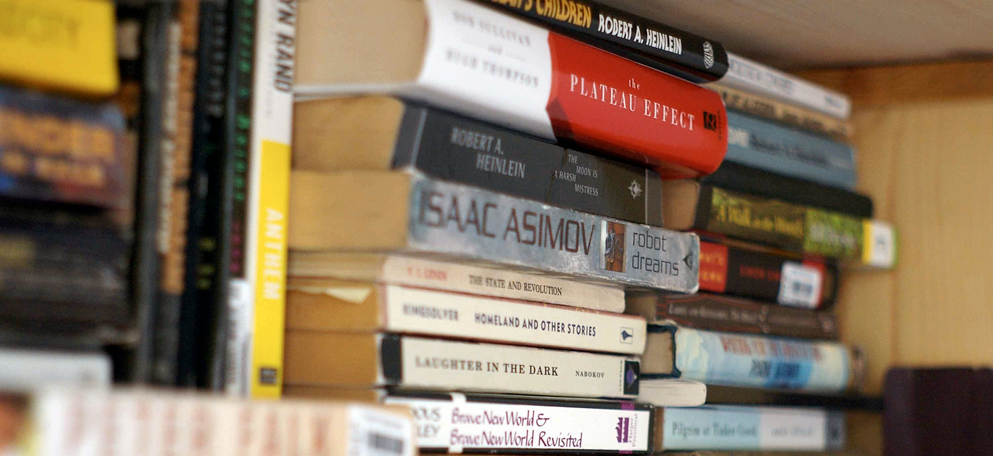
Technology, in one form or another, has been part of human life since time immemorial. Early inventors developed flints and axes, wheels and pulleys, presses and pens, engines and electricity; and early adopters reaped the rewards – cutting, rolling, learning, and powering their way ahead of the pack.
Thanks to the technologies of earlier eras, much of the modern world gained access to clean water and abundant food, was safeguarded from many crippling diseases, could communicate freely and widely, and was granted admittance to a library that would have made an enlightenment thinker gasp.
With the technologies of today, we’re undoing centuries of work: we’re polluting the water and destroying the land, we’re awash with disorders of the mind, we’re contacting without communicating, and we’re using our plenitudinous library – the Internet – to watch videos featuring funny felines.
Yes, we have access to those earlier technologies, and better ones still, yet we’re using them to – as Neil Postman put it some 30 years ago – amuse ourselves to death.
- See more at: link to magazine >>
Quotes and thoughts while reading:
Unplugged for 24 hours(p 18) was shocking to read, and a bit scary. Quotes like "...it was just like being 'tortured'" were frequent in this article. One student went so far as to get himself extremely intoxicated so he could make it through the last 8 hours. What does this mean that we as a society have reached a point where we can't even be without media for this long? Do these people now have communities and neighbors that they can spend time with? A friend and I were talking about this article and we brought up camping and backpacking. Just now I'm thinking about how many people probably bring their phones backpacking, and even go so far as to bring solar panels so they never have to be without. Guh, it's just disgusting and terrifying. Looking at the right side of the page displays quotes from all over the world - from Lebanon to Chile, Slovakia to USA, this is not just a problem restricted to one geographic location, this seems to be a world wide issue.
A frictionless existence touches on this Silicon Valley idea to find the "pain point", then eliminate it. I think even today I overheard two co-workers listening to a webinar, and the moderator dropped these very words. What is so wrong with pain? Isn't it a pain to have to use your feet to walk from one side of the room to another? Isn't it a pain to have to cook your own food, wouldn't it be nice to have some kind of syrup we can splurt into our mouths to be fed and alive? Nietzsche has a thing or two to say about pain, but getting back to this article this quote stood out - "Living frictionlessly often really just means living thoughtlessly." (p 21) It's getting at this idea that you aren't putting the intent into something when you offload it onto technology. You can get an app to wish someone happy birthday, but doesn't that make that birthday wish less meaningful? It ends on this great dystopian one of "one day, you could find yourself living the perfectly tech-smoothed life: alone at home, eating takeout you obtained without speaking to anyone else, watching streaming movies to avoid the 'pain' of meeting friends at the cinema... and wondering when exactly it was, in your frictionless existence, that the point of being alive slid entirely out of view."(p 22)
"It is not that we have a short time to live, but that we waste a lot of it. Life is long enough, and a sufficiently generous amount has been given to us for the highest achievements if it were all well invested. But when it is wasted in heedless luxury and spent on no good activity, we are forced at last by death's final constraint to realize that it has passed away before we knew it was passing." - Seneca (p 44)
"Anyone who thinks that we have more pressing problems than each other's intolerance and the destruction that we causing to the environment, they should get out of their office more often. Fundamentally, it's how much we're destroying the environment and how much we're destroying each other - that is the challenge we have." (p 72) from Scuba diving in the infosphere featuring an interview with Zan Boag.
"We live in a society exquisitely dependent on science and technology, in which hardly anyone knows anything about science and technology." - Carl Sagan (p 75)
"Technological progress has merely provided us with more efficient means for going backwards." - Aldus Huxley (p 74)
"Man has turned his back on silence. Day after day he invents machines and devices that increase noise and distract humanity from the essence of life, contemplate, meditation." - Jean Arp (p 74)
The art of Amistics brought up this beautiful point that the Amish are one of the only societies that thinks critically about technology. They don't just accept a new piece of technology and run with it - they take in a piece, offer it a few individuals, and if it doesn't improve their existence, they don't take it into their society. I think it's fascinating. Ron and I talked about this subject almost organically, percolating up through the universe to take place in and around the same time I read this article. Ron was already there, he'd already thought about this - I needed a nudge from this magazine.
fas·cism:
an authoritarian and nationalistic right-wing system of government and social organization.
synonyms: authoritarianism, totalitarianism, dictatorship, despotism, autocracy; More
Nazism, rightism;
nationalism, xenophobia, racism, anti-Semitism;
jingoism, isolationism;
neofascism, neo-Nazism
"In a society in which everything is commoditized, we are defined by what we own rather than who we are. A house is a signifier of social status and identity. Rather than places we call homes, houses have become commodities in the real estate market, investment vehicles subject to the vagaries of the market." (p 109) I don't think I want to be defined by what I own. I don't want belongings, I want to feel a sense of love and belonging.
I think this issue stirred and spurred a lot of interesting thoughts. Some I had already thought before, and were recirculated to the surface, and it definitely spoke to a lot of my fears. But it also spoke to the fact that technology isn't all bad. It can help us consume less, and could help solve a lot of the planets problems. A couple of the articles took the standpoint that "We got on the ship, and there aren't any lifeboats - so we've got to fix any problems on the ship, and we've got to make it to port." We have technology, and all the problems that it has created - and the only way to fix those problems is not to abandon technology, but to continue on until we find the solution. We've done too much damage to be able to just stop and let it repair itself(although the Earth will do just that - humans might not be around to see it thought.)
© JKloor 2016 Books
